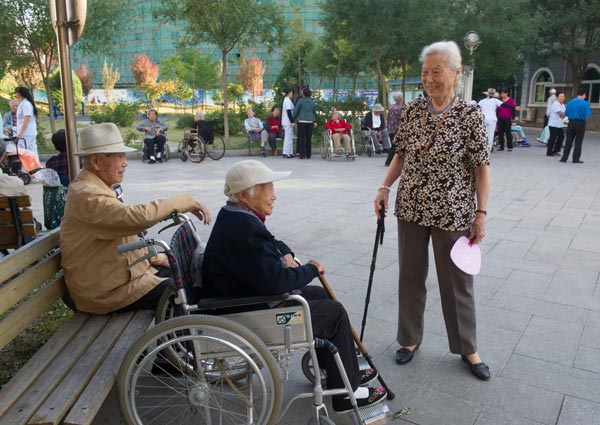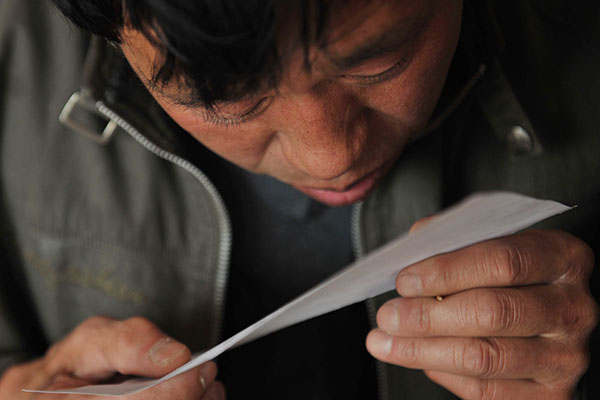
Senior citizens chat at a retirement home in Beijing. (Photo/Xinhua)
Editor's note: With the new year, China's ministries have been rolling out plans for major policy initiatives to address China's chronic societal and economic challenges. Here are some of the plans made for the next 12 months.
National pool for basic pensions
Minister of Finance Lou Jiwei said a national pool of basic pensions will be formulated during a new round of social security system reform at a national fiscal conference on Dec 28, 2015.
At present, China has established a comprehensive system of pooling funds for old-age insurance at the provincial level and implemented the transfer of basic pension accounts across provinces.
A national pool of pensions not only greatly facilitates Chinese citizens' transfer of basic pension accounts, but also gradually changes the imbalances of pension insurance's revenue and expenditure in different provinces, municipalities and autonomous regions.
A unified accounting method of local and national GDP data
Wang Baoan, director of the National Bureau of Statistics, said: "formulating a unified accounting method for local and national GDP data" is one of the Bureau's five major reforms.
If provincial calculations of Gross Domestic Product, or GDP, are added up, the aggregate, which is supposed to equal the national GDP, is often bigger. For example, in the first six months of 2015, sum of local GDP numbers is 2.7 trillion yuan ($0.4 trillion) more than the national GDP.
The difference lies in the current accounting method. Based on the method, local governments compile their respective statistics, while the National Bureau of Statistics is responsible for the national GDP.
The exit of 'zombie' companies
Miao Wei, minister of industry and information technology, said it is expected to see the closing of "zombie" companies and strategic industrial restructuring.
"Zombie" companies refer to failing companies that continue to operate with government support but cannot stand on their own.
These beleaguered companies are to blame for the potential systemic risks of the Chinese capital market.
Many people believe that the exit of these bad performers will help beat overcapacity, a long-standing problem dragging China's economy down.
A faster and cheaper broadband network
This policy will see almost all cities connected to the optical network. More than 50 percent of Internet users will enjoy a broadband speed of more than 20M. Users of the 4G network will be expanded to 600 million.
Ministry of Industry and Information Technology announced the plan at a conference on Dec 24, promising broader, faster and cheaper Internet connection.

100 million migrant workers will be granted urban resident status
From 2016, China will roll out a policy to grant 100 million migrant workers urban resident status, according to Xu Shaoshi, head of the National Development and Reform Commission.
Xu added the move is expected to drive home sales and consumption.
Nearly 55 percent of migrant workers live in cities but less than 40 percent hold a "hukou" (official residence status) for the places where they live and work.
Poverty eradication will speed up
A new guideline on poverty eradication will be made in 2016 in a move to build an overall well-off society.
An opinion piece by Xinhua News agency derided local officials for fabricating reports in a way to exaggerate their efforts in poverty reduction, prompting the public to face the true conditions of poor people in China.
Data show that there were more than 70 million poor people living in the rural areas by the end of 2014.


















































